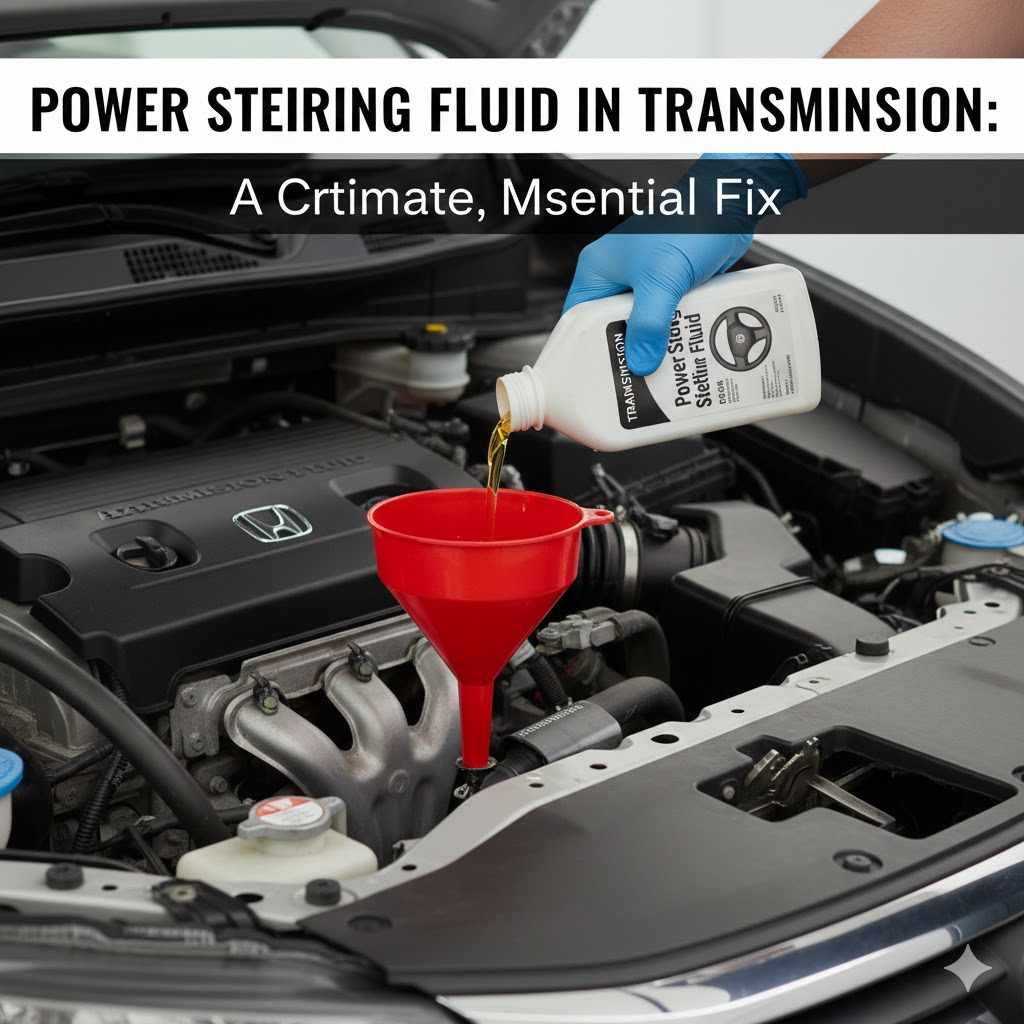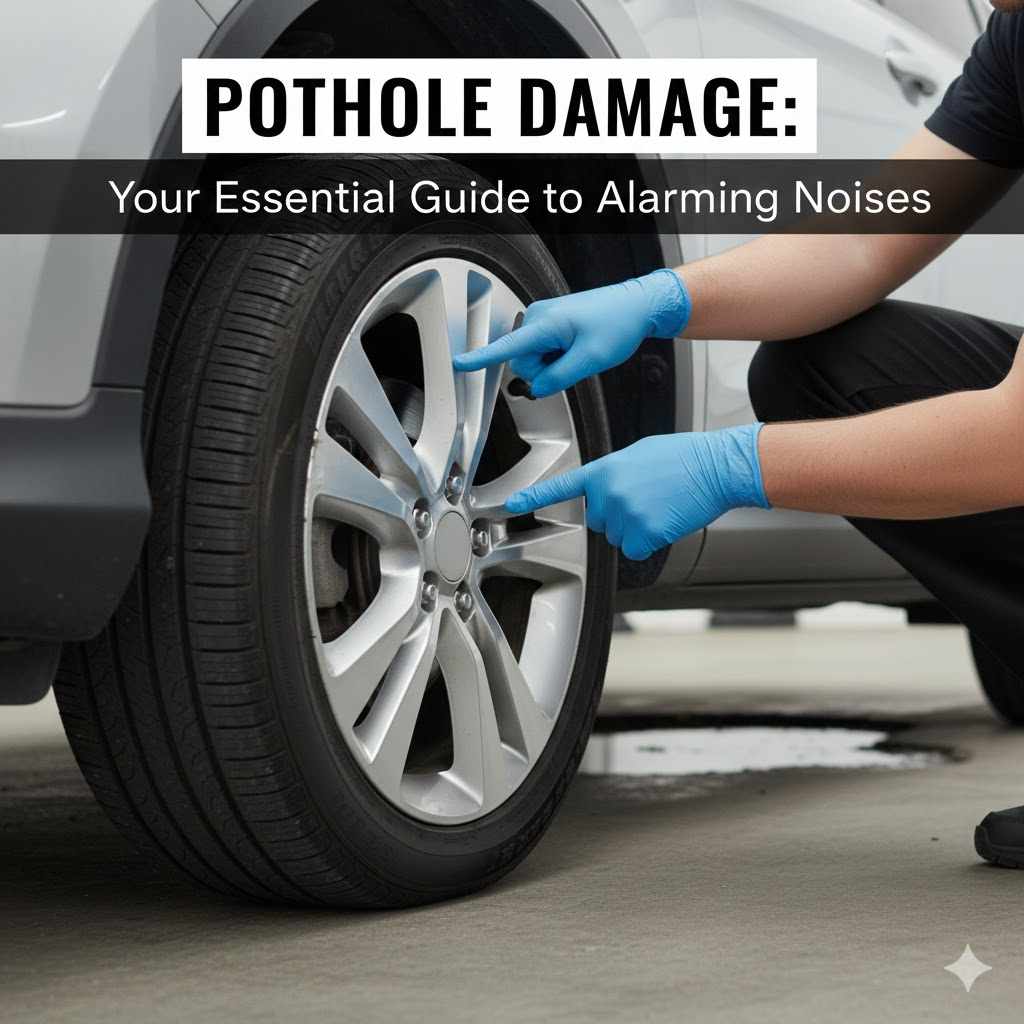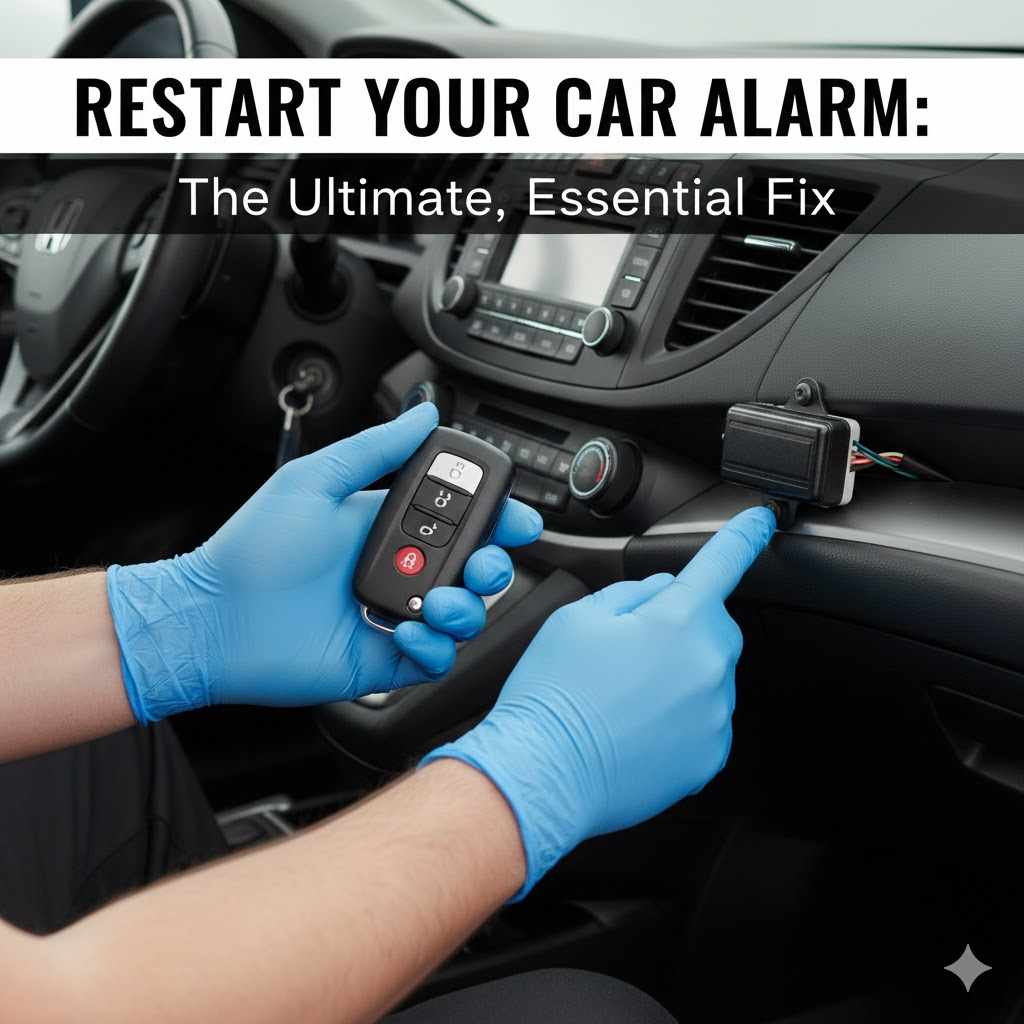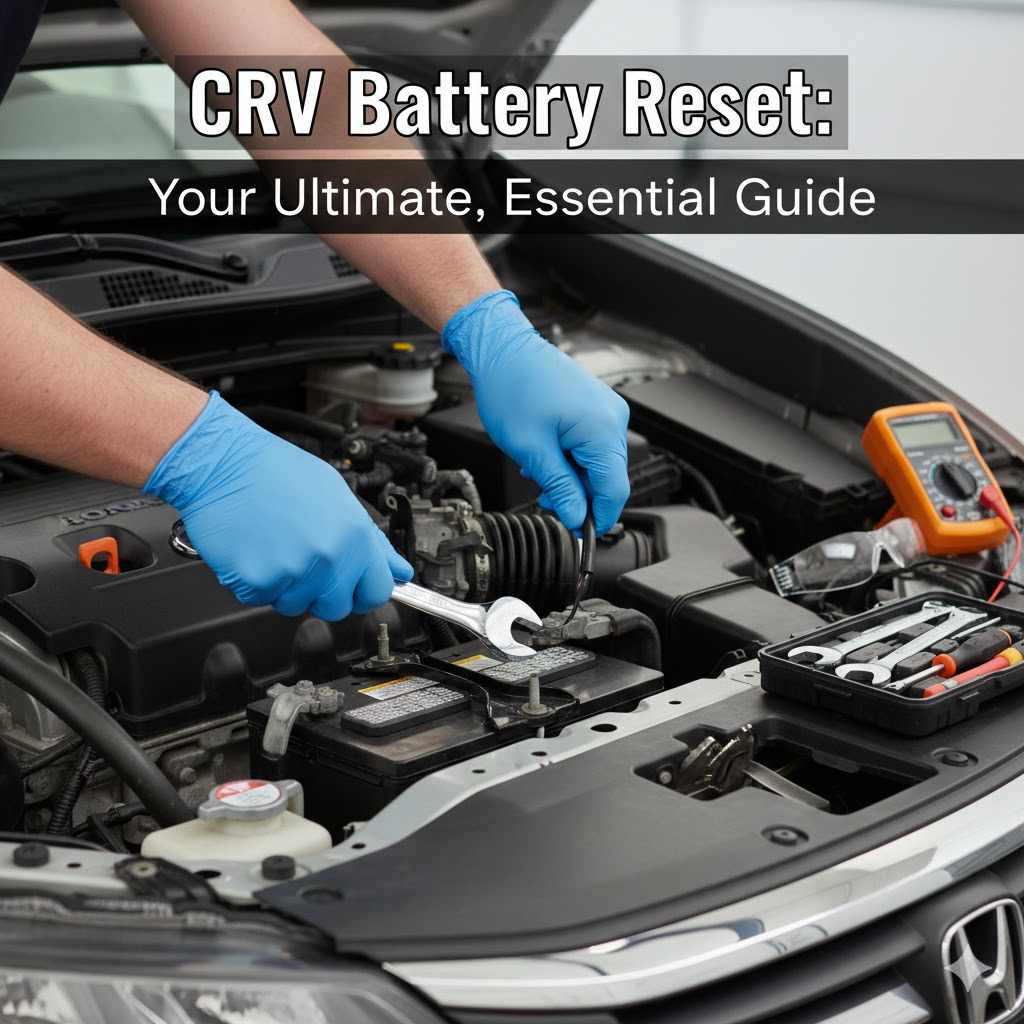Are Trucks Safer Than Cars? Uncover the Truth
Trucks and cars each have unique safety features. Many wonder which is safer.
Trucks generally offer more protection in collisions due to their size. Cars, however, often excel in maneuverability and advanced safety technology. Safety is crucial when choosing a vehicle for travel. The debate between trucks and cars is ongoing. Trucks are larger and heavier, which can provide more safety in certain situations.
They often sit higher, offering better visibility. Yet, their size can make them harder to control in emergencies. On the other hand, cars are smaller and lighter. This makes them easier to handle and park. Many cars come equipped with advanced safety features. These include lane assist and automatic braking. Comparing trucks and cars helps drivers make informed decisions. Understanding their safety aspects can guide you to a choice that suits your needs.
Truck Vs Car: Safety Debate
Many think trucks are safer than cars because they are bigger. This is not always true. Size doesn’t mean safety. Trucks might protect better in crashes. But they can also roll over easier. Cars have better brakes. They stop faster in emergencies. Trucks need more space to stop. Trucks are taller. This makes it hard to see small cars. Blind spots are bigger in trucks.
Truck makers say their vehicles are very safe. They focus on crash tests. Safety features in trucks are highlighted. Many new trucks have advanced technology. This includes lane assist and blind spot alerts. Car companies also offer safety features. They often have better ratings for small accidents. Both industries aim for better safety. Different designs mean different safety levels.

Credit: lordandkobrin.com
Crash Statistics Analysis
Trucks are much bigger than cars. This size can be a problem. Fatality rates are higher in crashes with trucks. Big size means more danger. But, truck drivers are often well-trained. Training can help reduce risks. Yet, the size difference remains a concern.
Injuries can be severe in truck crashes. Passengers in smaller cars face more danger. Trucks have stronger bodies. They protect truck drivers better. But, car passengers might get hurt more. Safety features in cars are improving. This can help reduce injuries. Yet, the danger is still there.
Structural Differences
Trucks are often larger and heavier than cars. This means they can be stronger in crashes. A bigger size can absorb more force in an accident. This can protect the people inside. Weight also plays a big role. Heavy trucks might push lighter cars aside in collisions. But, bigger size can also make trucks harder to stop quickly. This can be risky in emergencies.
Trucks have unique design features for safety. Many trucks have reinforced frames. This helps them stay strong in crashes. High seating gives drivers a better view of the road. This helps them spot dangers early. Trucks often have large mirrors. These help drivers see all around. Some trucks have advanced braking systems. These help them stop faster on the road.
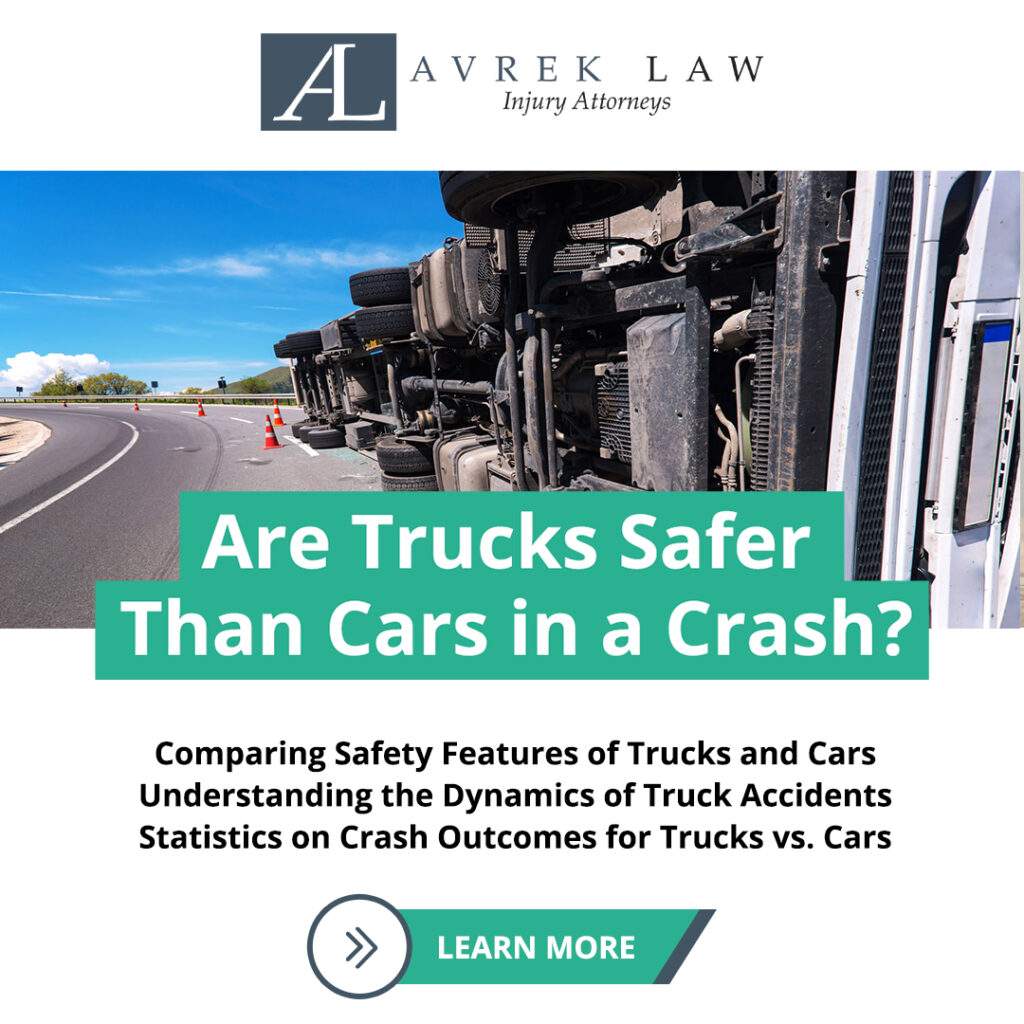
Credit: www.avrek.com
Driver Behavior And Skills
Truck drivers need special training. They learn how to control big vehicles. This training is very important for road safety. It helps drivers handle tough situations. Car drivers usually do not get this training. This makes truck drivers more skilled. Their training focuses on safe driving techniques. This helps them avoid accidents. This skill is crucial for traffic safety.
Trucks often have different driving patterns. They travel long distances. They drive on highways mostly. Cars often drive in cities. Trucks have stricter speed limits. This helps in preventing crashes. Truck drivers usually have set routes. They follow these routes carefully. Car drivers have more freedom. Their routes can change easily. Truck drivers maintain consistent speeds. This makes their driving safer.
Technological Advancements
Trucks now have many safety features to keep drivers safe. Blind spot monitors help drivers see other cars. Lane departure warnings alert drivers if they drift. These features reduce accidents on roads.
Automatic emergency brakes stop trucks quickly. This helps avoid crashes. Cameras and sensors provide better visibility. Drivers can see all around the truck. These features make trucks safer for everyone.
Autonomous technology is growing in trucks. This means trucks can drive themselves. Self-driving systems use computers to control the truck. They follow traffic rules and avoid obstacles.
These systems can prevent accidents by reacting fast. Advanced sensors help the truck see the road. They are improving safety for all vehicles. Autonomous trucks might be safer than cars someday.
Environmental Factors
Trucks and cars face different environmental challenges affecting safety. Trucks often navigate harsh weather and uneven terrains. Cars, meanwhile, encounter urban pollution and traffic congestion. These factors influence safety perceptions and experiences differently for each vehicle type.
Weather Conditions
Trucks handle rain and snow well. Their heavy weight helps them stay on the road. Cars can slide more on wet roads. Trucks also have bigger tires. This helps them grip the road better. Wind can be tough for both. But, trucks are less likely to tip over. Big trucks can block the wind for smaller cars.
Road Infrastructure
Some roads are made for trucks. Highways have wide lanes and strong bridges. This is good for trucks. In cities, narrow roads can be hard for trucks. Potholes can damage cars more than trucks. Trucks have strong frames. They can handle bumps better. But, cars fit better in small parking spots. Trucks need more space to park.
Economic Considerations
Trucks often come with higher ownership costs. Their parts are usually bigger and more expensive. Fuel costs can also add up. Trucks often use more fuel than cars. Maintenance is another factor. It’s usually more costly for trucks. Over time, these costs can impact your budget.
Insurance for trucks can be different. It might be more costly than car insurance. Trucks are bigger and might cause more damage in accidents. This can lead to higher insurance rates. It’s important to compare insurance policies. Make sure you find the best deal for your truck.

Credit: www.youtube.com
Public Perception
Many people think trucks are safer than cars. Trucks are big and strong. Media often shows trucks as tough. This influences public opinion. People see trucks surviving accidents in movies. They feel protected in a truck. Media can shape our beliefs. This affects how we view safety. Trucks seem safe because of their size. But size does not always mean safety.
Media Influence
TV and movies show trucks as heroes. Big trucks win in crashes. News sometimes focuses on car accidents more. This creates a bias. People think cars are less safe. Media stories impact our views. Sometimes, they highlight truck safety features. This makes trucks seem better. Stories shape our thoughts and choices.
Consumer Preferences
People like trucks for many reasons. Trucks are popular for family trips. They carry heavy stuff easily. Many feel safe in trucks. Safety features attract buyers. Trucks also offer comfort and space. People choose based on needs. Safety is a big factor. Trucks seem strong. This gives peace of mind.
Frequently Asked Questions
What Is Safer, A Car Or A Truck?
Cars generally offer better maneuverability and stability, making them safer in avoiding accidents. Trucks provide more protection in collisions due to their size and weight. Safety depends on factors like driving conditions, vehicle maintenance, and driver behavior. Always choose a vehicle with modern safety features and drive responsibly.
What Truck Is The Safest In A Crash?
The 2023 Ram 1500 ranks high for safety in crashes. It features advanced safety technology and a robust structure. The Insurance Institute for Highway Safety (IIHS) and National Highway Traffic Safety Administration (NHTSA) rate it highly. Always check the latest safety ratings for updates.
Are Trucks More Likely To Flip?
Trucks have a higher risk of flipping due to their elevated center of gravity. Sharp turns and uneven surfaces increase this risk. Proper loading and cautious driving can minimize flipping incidents. Safety features in modern trucks also help reduce this risk.
Always prioritize safety when driving or loading trucks.
Do Trucks Get In More Accidents Than Cars?
Trucks are involved in fewer accidents than cars. However, truck accidents often result in more severe consequences. Trucks have longer stopping distances and are harder to maneuver. Drivers should stay alert and maintain safe distances. Understanding these factors can help reduce risks on the road.
Conclusion
Trucks and cars each have their own safety features. Trucks offer higher ground clearance and stronger frames. Cars, on the other hand, often have advanced safety technology. Your choice depends on your needs and preferences. Consider what matters most for your safety.
Both vehicles can be safe with proper care and driving. Always prioritize maintenance and safe driving habits. Ultimately, safety is in the hands of the driver. Drive responsibly, regardless of your vehicle choice.

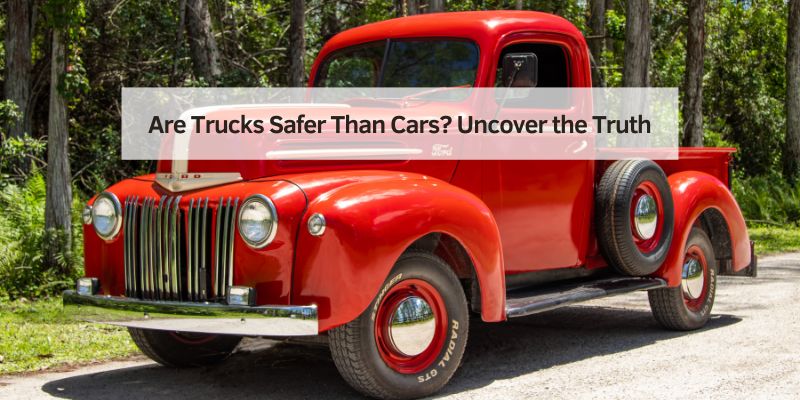
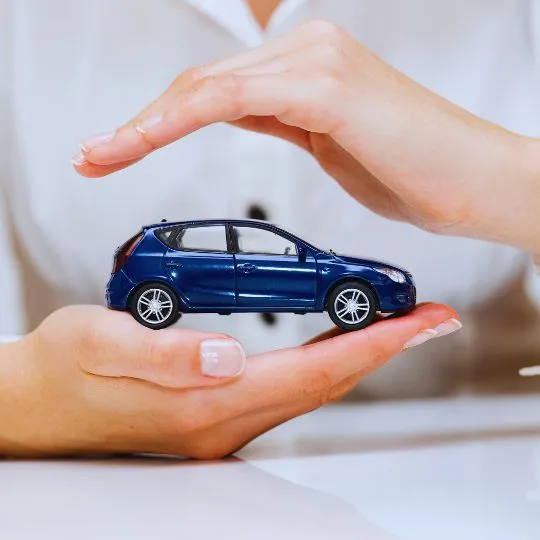
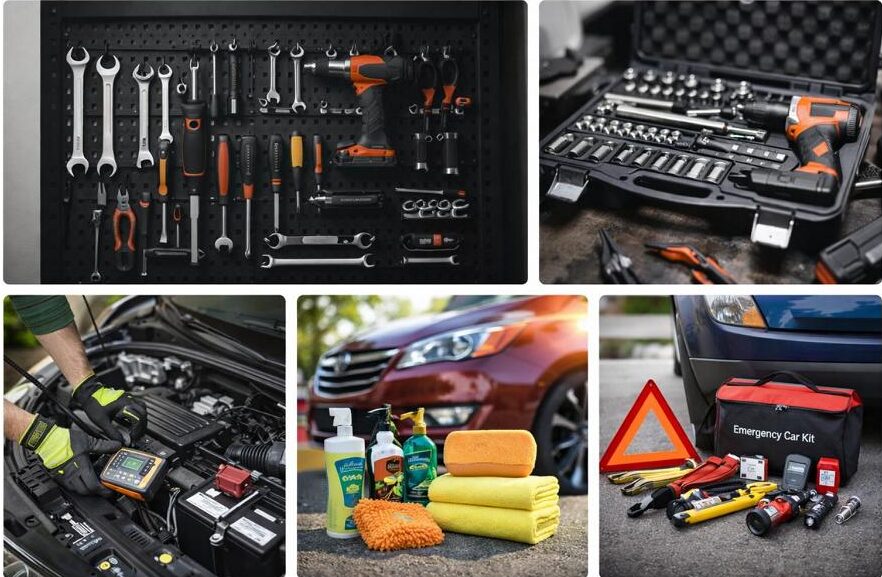
 View on Amazon
View on Amazon